- Dr. Raghul M. MBBS MS DNB FMAS FICRS MCh(Paed Surg)
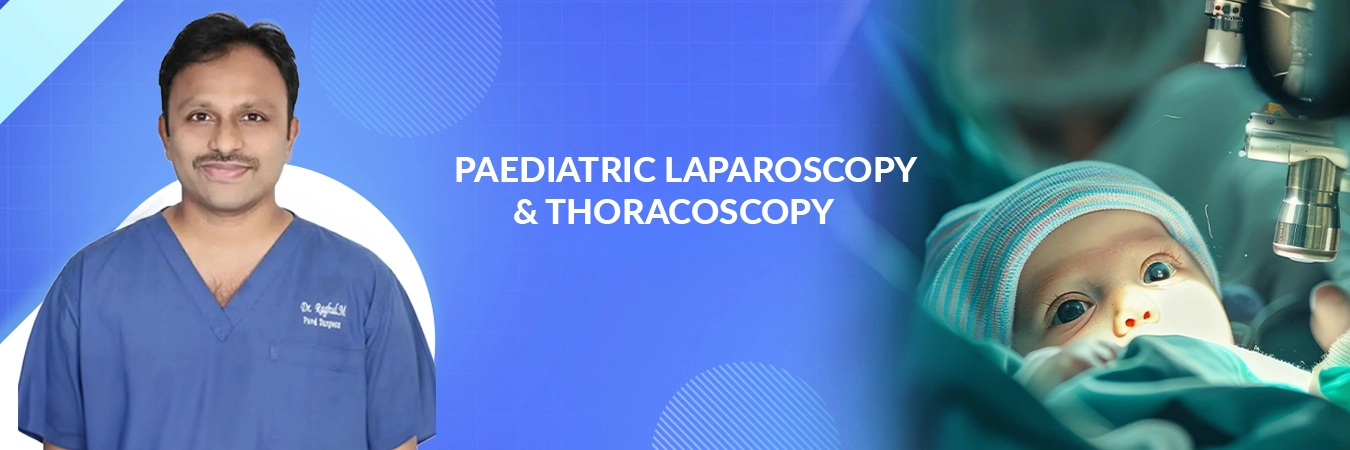
Specializing in advanced paediatric laparoscopy and thoracoscopy, the focus is on offering cutting-edge, minimally invasive surgical options for young kids. These modern techniques, involving smaller incisions, result in faster recovery times, reduced pain, and minimal scarring, making the experience less stressful for both children and their families.
With extensive experience and dedication to paediatric care, each procedure is tailored to meet the unique needs of every child. Expertise for basic laparoscopic procedures such as appendectomy, treatment for an undescended testis and advanced paediatric thoracoscopic surgery for chest conditions, the aim is to provide the highest standard of care while minimizing disruption to the child’s life.
Choosing minimally invasive surgery means your child can return to their daily activities sooner, with less discomfort and fewer complications, ensuring the best possible outcomes for their health and well-being.
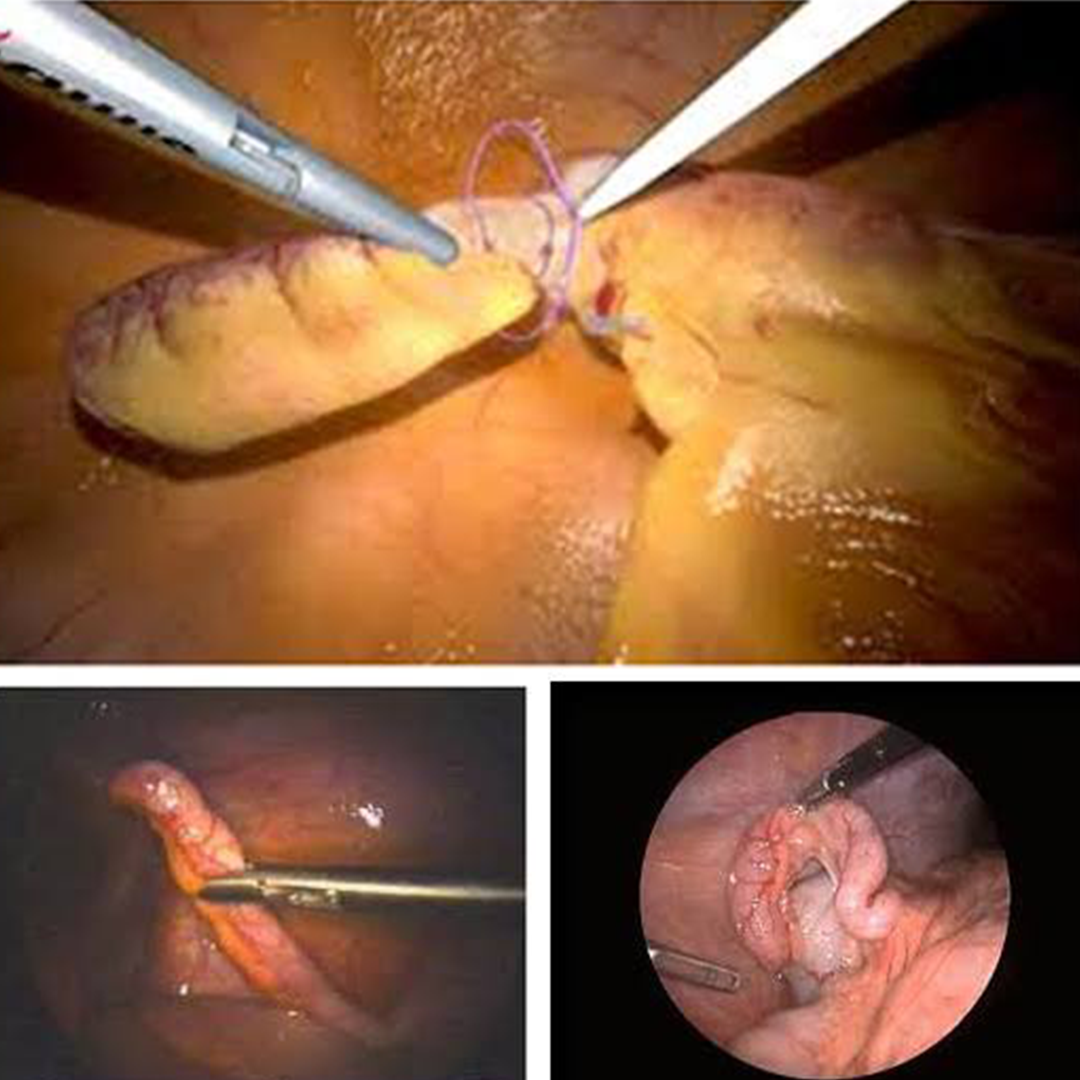
Appendectomy, the surgical removal of the appendix, is a common procedure in paediatric care, for treating acute appendicitis. We offer advanced, minimally invasive appendectomy services, using laparoscopic techniques even in complicated cases ( perforated appendicitis with intestinal obstruction ) to minimize discomfort and speed up recovery for your child. This approach ensures smaller incisions, reduced pain, and quicker return to normal activities, allowing your child to get back to their routine with minimal disruption.
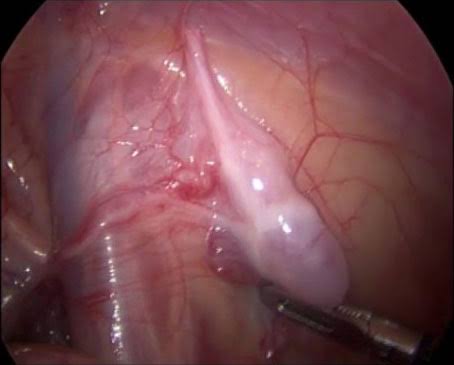
Undescended testis surgery, or orchidopexy, is crucial for children with testes that haven't descended into the scrotum by 6 months of age. We employ surgery using minimally invasive techniques to ensure a safe and effective correction. This procedure not only improves future fertility potential and reduces the risk of complications but also ensures a quicker recovery with minimal discomfort for your child.
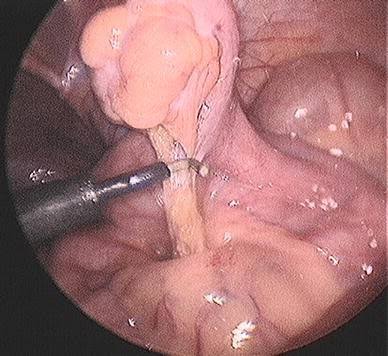
Meckel’s resection is a procedure to remove Meckel’s diverticulum, a small pouch in the intestine. Duplication cysts in the intestine detected antenatally or postnatally also need removal. Both of them can cause complications like bleeding or obstruction. Minimally invasive ( laparoscopy ) techniques ensures reduced pain, minimal scarring, and a faster recovery for your child, allowing them to return to their normal activities with ease.
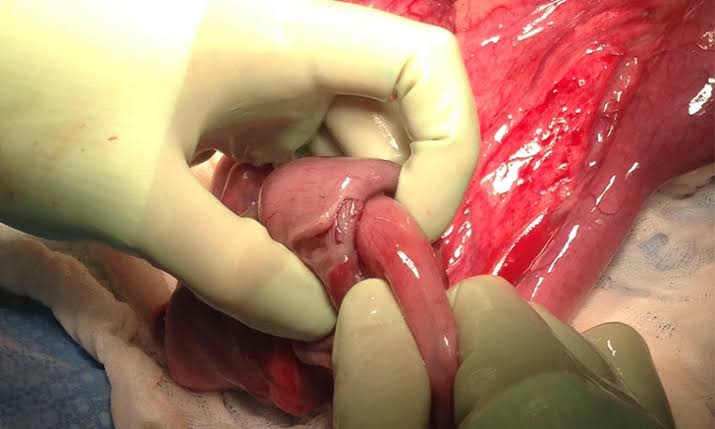
Intussusception reduction is a procedure to treat a condition where part of the intestine folds into another section, causing a blockage. Reducing intussusception using minimally invasive techniques (hydrostatic reduction ) ensures a quicker resolution with less discomfort and faster recovery for your child.

Empyema Thoracis treatment using Video-Assisted Thoracoscopic Surgery (VATS) is a minimally invasive procedure to remove infected fluid, pus, or even large growths like giant thymolipoma from the pleural space around the lungs. Even in advanced cases (Stage 3), VATS can be used effectively for treatment. This advanced technique ensures a quicker recovery, less pain, and minimal scarring, allowing your child to breathe easier and recover faster, with a reduced risk of complications.
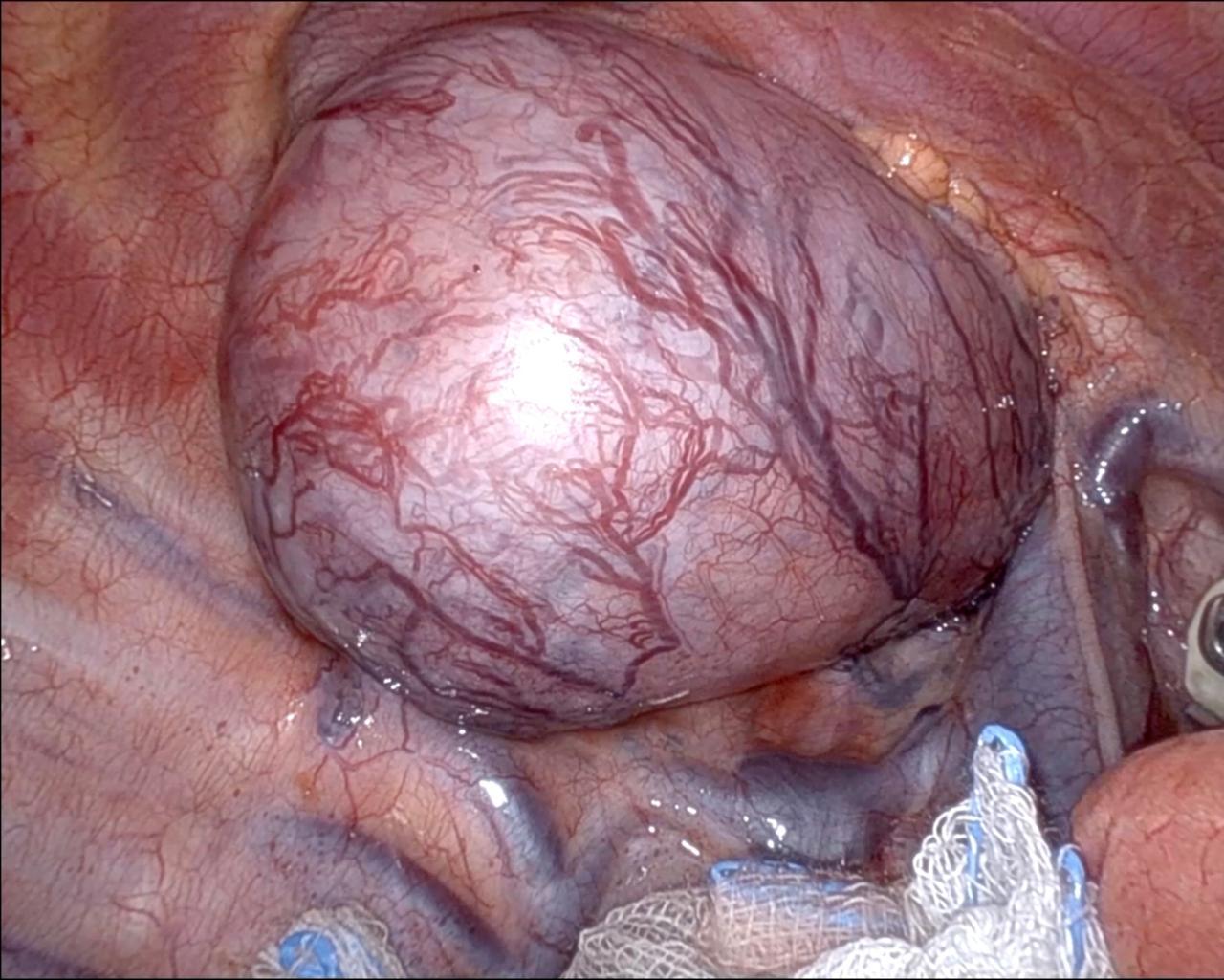
Duplication cysts are rare congenital abnormalities that can occur in the gastrointestinal tract, causing various symptoms. These cysts may also be associated with conditions like giant thymolipoma. Antenatally or postnatally diagnosed, duplication cysts can be treated using the most advanced technology available. Specialized in their surgical removal, minimally invasive techniques ensure a safe and effective procedure. This approach minimizes pain, reduces scarring, and promotes faster recovery for your child.
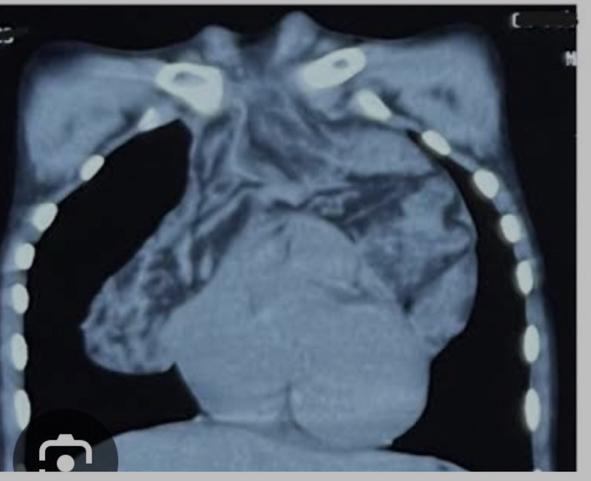
A thymic lesion refers to abnormal growths in the thymus, including thymomas (tumors), thymic abscesses (infected fluid collections), and thymolipomas (benign tumors with fat tissue). Symptoms can include chest pain or difficulty breathing. Diagnosis is made through imaging, and treatment often involves surgery to remove the lesion. India's first reported case of Thoracoscopic removal of giant thymolipoma

Lung and nodal biopsy procedures are crucial for diagnosing and evaluating conditions affecting the lungs and nearby lymph nodes, including complex cases like giant thymolipoma. Using advanced, minimally invasive techniques, these biopsies are performed with precision and safety, minimizing discomfort and promoting quicker recovery.
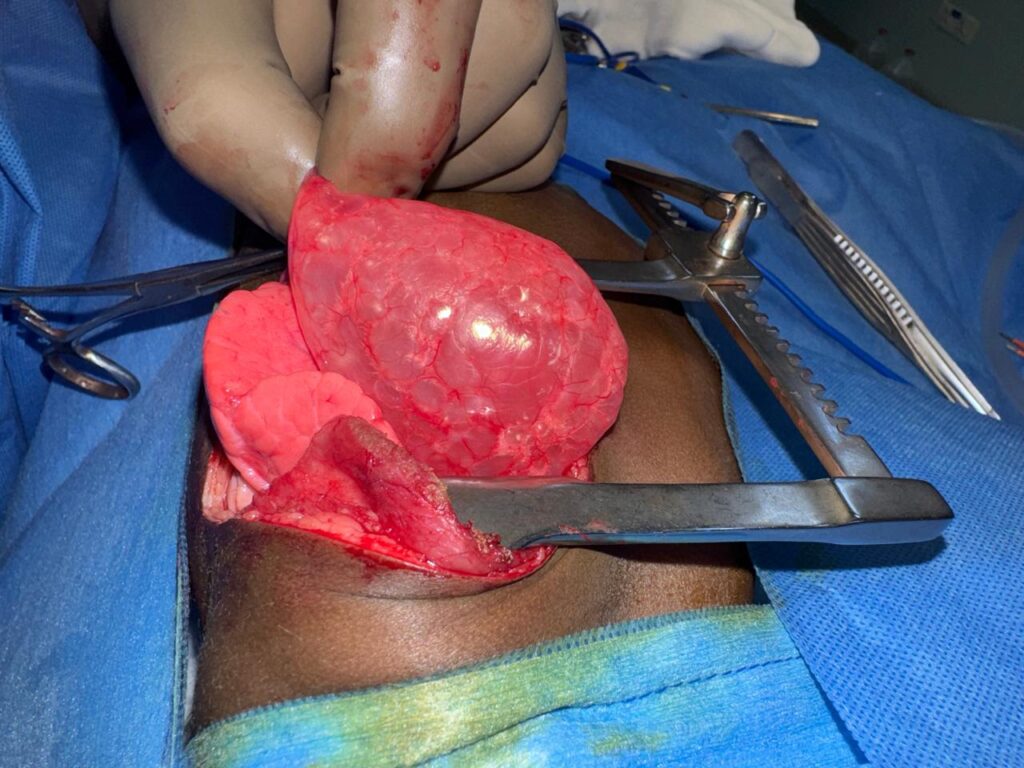
Lung lesions like Congenital Lobar Emphysema (CLE), Congenital Pulmonary Airway Malformation (CPAM), and pulmonary sequestration are birth defects affecting lung development. CLE causes air trapping and overinflation, CPAM involves abnormal cystic tissue, and pulmonary sequestration is non-functional lung tissue. These conditions often lead to breathing difficulties. Diagnosis is through imaging, and treatment typically involves surgery to remove the affected tissue, depending on the severity.
Dr. Raghul M uses these techniques to treat a variety of conditions, including appendicitis, cholecystitis, undescended testis, thoracic tumors, and congenital diaphragmatic hernia, among others.
Yes, Paediatric Laparoscopy is a safe and effective option for many surgeries. Dr. Raghul M’s extensive experience in minimally invasive surgery ensures that your child is in capable hands, with procedures tailored to minimize risk and enhance recovery.
Recovery time is significantly shorter with these minimally invasive techniques. Most children can return to normal activities within a few days to a week, depending on the complexity of the surgery.
During the surgery, Dr. Raghul M uses a small camera and specialized instruments inserted through tiny incisions. This allows for precise surgical intervention with minimal disruption to surrounding tissues, leading to a smoother recovery.
Dr. Raghul M provides thorough pre-surgical consultations, clear communication throughout the process, and dedicated post-operative care to ensure that families are fully informed and supported at every stage of their child’s treatment.
Contact Dr. Raghul M to schedule a consultation and explore the best treatment options for your child.